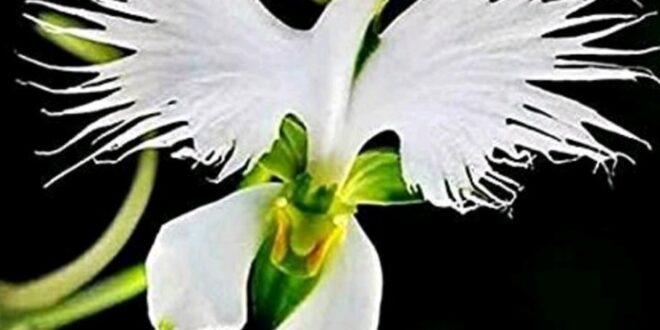From the Soil of the Earth to the Sky of Meaning
By Dr. Hossam Badrawi
In a silent moment of contemplation, I encountered an image of a rare flower called Elata, known among people as the “Flower of the Holy Spirit.”
It looks as if it were born of legend—its stunning form reveals a white dove spreading its wings, as if descending from the sky with a message of peace and reassurance.
This flower, though it grows in the damp soil of the tropical rainforest, carries a spiritual meaning far beyond its geography. It is not merely a botanical being, but a mirror of humanity’s thirst for the sacred, a symbol of resurrection after pain, and of light after darkness—thus, it earned its name.
Does nature intend this? Or is it the soul that casts meaning upon things?
In the blooming of a rare flower shaped like a dove, the human heart finds a mirror of its own longing for meaning.
It doesn’t matter whether it blooms only during Holy Week or at any time of the year; what matters is that its presence awakens in us a sense of wonder at creation, and the illumination of symbols.
Nature does not speak, but it inspires.
And in every flower, every wing, every color—there is a hidden message for those who open their hearts, not just their eyes.
The Flower of the Holy Spirit is not merely a plant, but a woven image of majesty and serenity, like a silent revelation passing through a person in a moment of clarity.
Thus, when some of us associate its blooming with Holy Week, we are not describing nature so much as reflecting our own emotions—our need for hope, and for a beauty that heals pain.
Do we see in the flower a symbol of resurrection after suffering? Or is it an invitation to realize that the soul blooms whenever it is touched by love?
And so, just as the flower opens in silence, our souls unfold when touched by true beauty—the kind that does not proclaim itself, but suggests.
The Elata flower is life’s call to awaken, a call to see in the details of nature signs that guide us from the material to the spiritual, from observation to insight.
Perhaps, if we listen closely, we will discover that the entire universe is an unspoken poem, and that we, the questioning beings, are part of this divine hymn that transcends time.
 Dr. Hossam Badrawi Official Website
Dr. Hossam Badrawi Official Website


